In a medieval miniature, Bulgarian Czarina Sara figures beside her husband, Czar Alexander, and two children, Shishman and Tamara. A Jewish queen, Sara of Turvono was obliged to convert to Christianity, adopting the name Theodora. In the fourteenth century, such a union shocked no one in Constantinople, though it would have been inconceivable to the leaders of Rome.
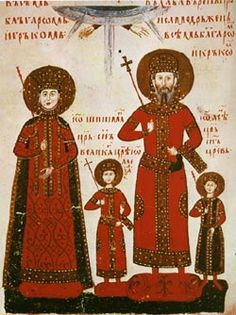
Jews first landed on the banks of the Danube over 1000 years ago, long before the arrival of the Slavs and Huns. Engraved with a menorah and Latin inscriptions, a Roman-era stele has been discovered in Nikopol, in the northern part of the country.
The Jewish diaspora, moreover, took refuge in this stopping ground and melting pot called Bulgaria. Expelled from the heart of the Byzantine Empire, Jewish colonists took root here over centuries of relative tolerance.
In the early days, Judaism and Christianity competed in the conversion of the Bulgarians, most of whom were still atheists at the time. The Christians won out, even if the faith of early Bulgarian Christians was in large part syncretic, borrowing from both Judaism and lingering pagan rituals.
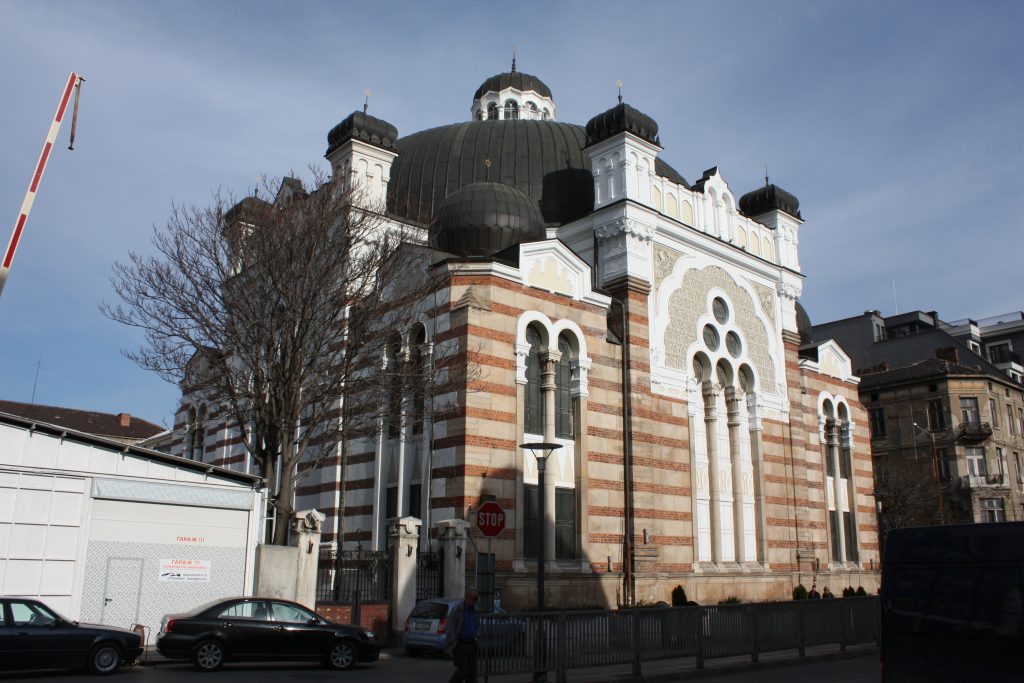
Around 860 C.E., Bulgarian emissaries were still asking Pope Nicholas I whether they ought to choose Saturday or Sunday as their day of rest. The first names of the earliest Bulgarian princes -David, Moses, Aaron, and Samuel- also reflect Jewish influence on Bulgarian life.
Already enjoying trade relations with their fellows in Italy and Dubrovnik (Ragusa), local Jews -a majority of whom were still of the Romaniote (Byzantine) tradition- benefited from royal privileges that included the right to hold to post torturer! Rabbi Yaakov ben Eliyahu once recounted to his apostate cousin, the Spaniard Pau Christiani, how the good Bulgarian king Ivan Asen II had commanded two Jews to avenge their people by tearing out the eyes of Salonae’s governor, Theodore I Angeleus; known as the “Greek Devil”, the latter had made a name for himself through his hatred of the Jewish faith. But taken with pity, the pair refused their monarch’s enucleation order. In response, Ivan Asen II had the two thrown off a mountaintop.
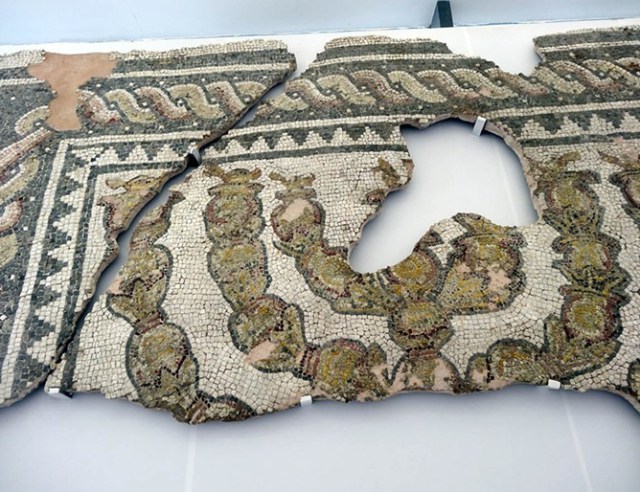
Fleeing persecution in western Europe, Jews flooded into Bulgaria in successive waves throughout the fifteenth century, first from Hungary and Bavaria, and later from Spain after their 1492 expulsion by Catholic monarchs Ferdinand and Isabella. Falling under Turkish domination, Bulgaria, like neighboring Greece, proved to be one of the most accommodating countries for Sephardic Jews from Spain. More numerous, cultivated, and prosperous than Bulgaria’s other communities, the Sephardim quickly gained a foothold there, progressively transmitting to the rest of the population their unique language, Judezmo. According to historian of Bulgarian Judaism Vicki Tamir, after the fifteenth century, Yiddish was no longer heard on the streets of Sofia. Four hundred years later, Iberian culture still thrived among the Jews of Bulgaria, who now spoke old Castilian and prepared the same Spanish dishes that had decorated Cervantes’ table. This all occurred, moreover, inside the mosaic of the other Greek, Turkish, Albanian, Armenian, and Gypsy minorities.
Canetti remembers
“The first children’s songs I heard were Spanish; I heard old Spanish romances; but the thing that was the most powerful and irresistible for a child was a Spanish attitude. With naïve arrogance, the Sephardim looked down on other Jews.”
Elias Canetti, The Tongue Set Free: Remembrance of a European Childhood, Trans. Joachim Neugroschel (New York: The Seabury Press, 1979).
Exiled from his native Toledo, the eminent rabbi Ephraim Caro chose to settle in Nikopol. His son Joseph, author of the Shulhan Arukh, one of the greatest treatises codifying Jewish law, moved on to the Palestine city of Safed. Within the vast Ottoman Empire, where they saw little persecution but suffered heavy taxation, Jews enjoyed prosperous trade relations with the other communities spread across the Dalmatian coast, the Balkans, and the Levant.
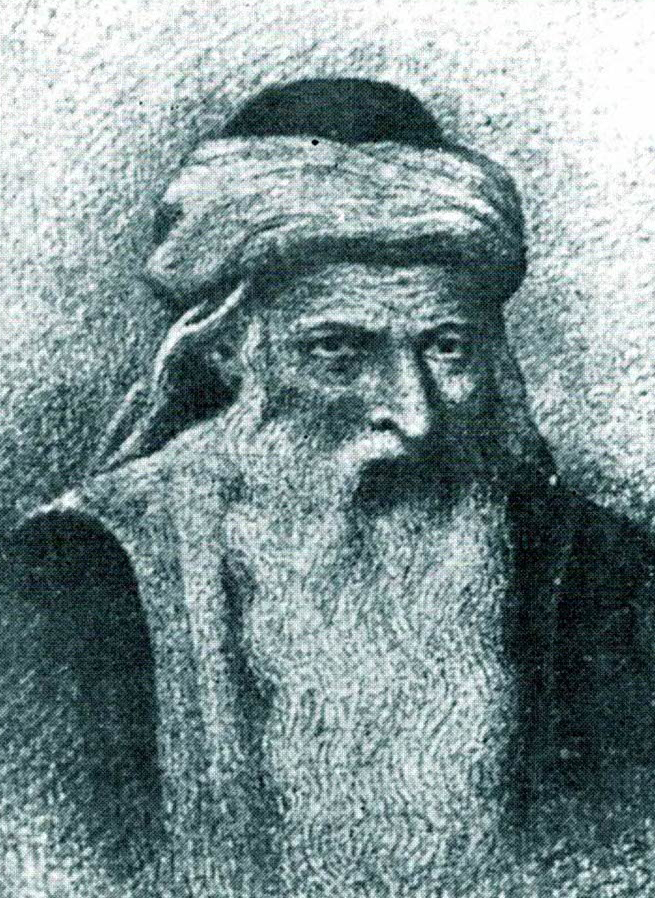
The nineteenth century saw an upsurge in Balkan nationalism, while the Jewish elite itself became gripped by the Enlightenment and its egalitarian claims. When the 1877-78 Russo-Turkish War broke out, a precursor to Bulgarian independence, many Jews joined the national liberation movement that was largely controlled by the Russians.
Paradoxically, the emergence of Bulgarian nationalism was concomitant with the spread of anti-Semitism, with many locals viewing Jews as henchmen of the formerly occupying Turks. Massacres and pillages ensued, perpetrated by both the Bulgarian-Russian military and the Turkish Bashibazouks. The communities in Nikopol, Kazanluk, Svishtov, and Tsara Zagora were forced to flee en masse; the brand new synagogue in Vidin was destroyed by Russian artillery. Thousands of Bulgarian Jews found shelter in regions that were spared from war, or beyond in Andrianopolis and Constantinople.
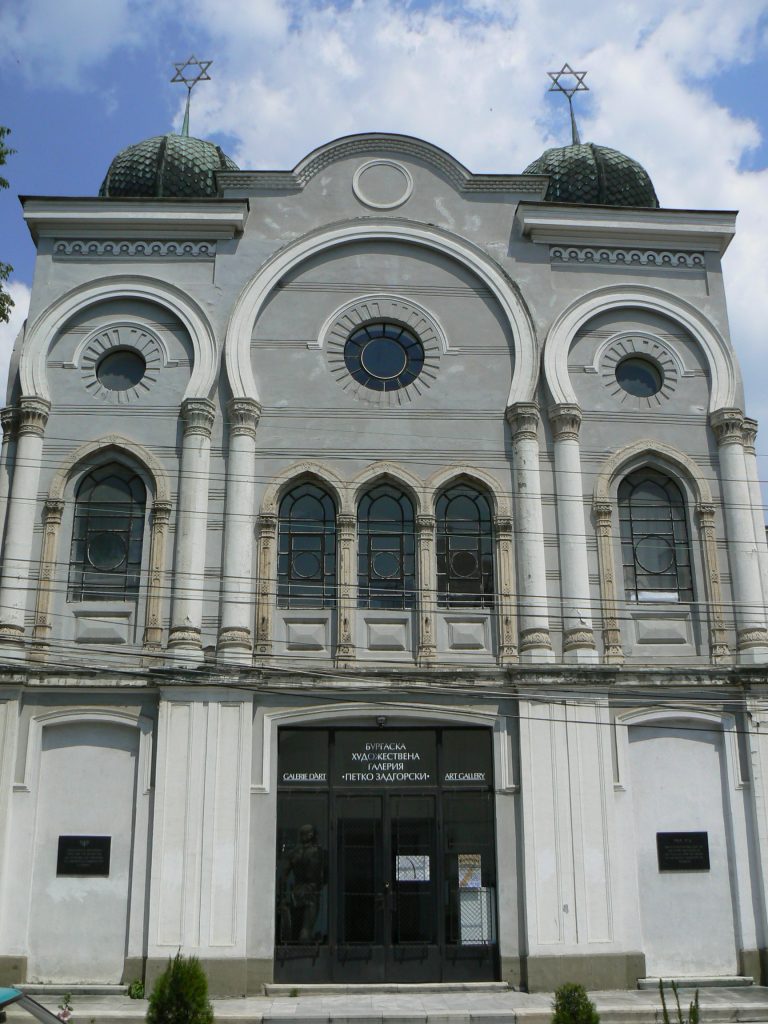
Following Turkey’s defeat, the 1878 Treaty of Berlin required that the newly created Balkan kingdoms, Bulgaria included, grant full civil rights to their Jewish minorities.
And yet, whereas Jews were subjects to the military draft like the rest of their fellow citizens, they were barred from attending the Military Academy and excluded from the higher spheres of government.
Bulgaria’s economic difficulties after its defeat in the First World War (it had sided with the Central Powers in that conflict) not only affected the Jewish minority but stoked local anti-Semitism as well.
It was in this era that the famous French reporter Albert Londres kept his readers on the edge of their seats with his coverage of the brutal Comitadjis, Bulgaria’s fiercely anti-Semitic underworld composed of partisans bent on annexing recently independent Macedonia.
Jews in Bulgaria were therefore less inclined to assimilate than those in other European countries at the time (such as Austria, Germany, and Hungary), where anti-Semitism was otherwise more deeply rooted.
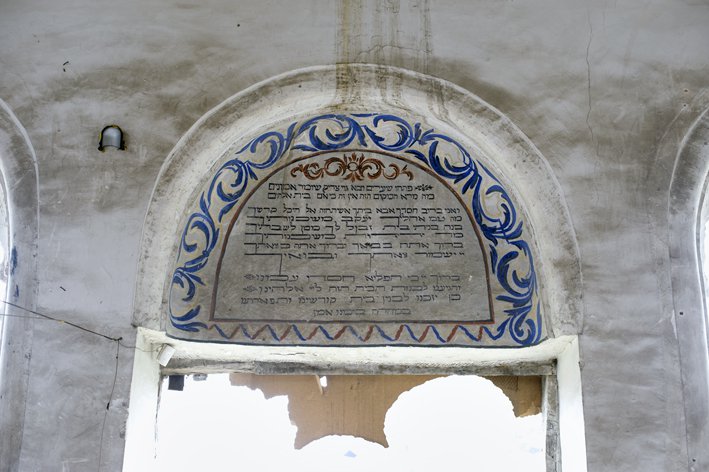
This did not prevent younger generations from abandoning the Judezmo tongue for Bulgarian, however. The country’s first Jewish newspaper, Chelovecheski prava (Human Rights) was published in Bulgarian; another community periodical, La Alborada (Dawn), initially published in Judezmo, eventually switched to the national language, too. That said, the Zionist movement also proved to be wildly successful in Bulgaria, dominating the entire community here between the wars, including the consistory. More than 7,000 Bulgarian Jews emigrated to Palestine before 1948.
Allied with Nazi Germany, in 1940 the kingdom of Boris III enacted harsh anti-Semitic laws, quickly depriving Jews of all means of subsistence through a series of bans, confiscations, and forced-labor decrees. However, when Adolf Eichmann’s services demanded the final liquidation of the Jews in 1943, the fate of the armed conflict had begun turning against the Axis powers. The Battle of Stalingrad marked a turning point in the war; the Allies had landed in North Africa, and the question of a front opening up in the Balkans had arisen.
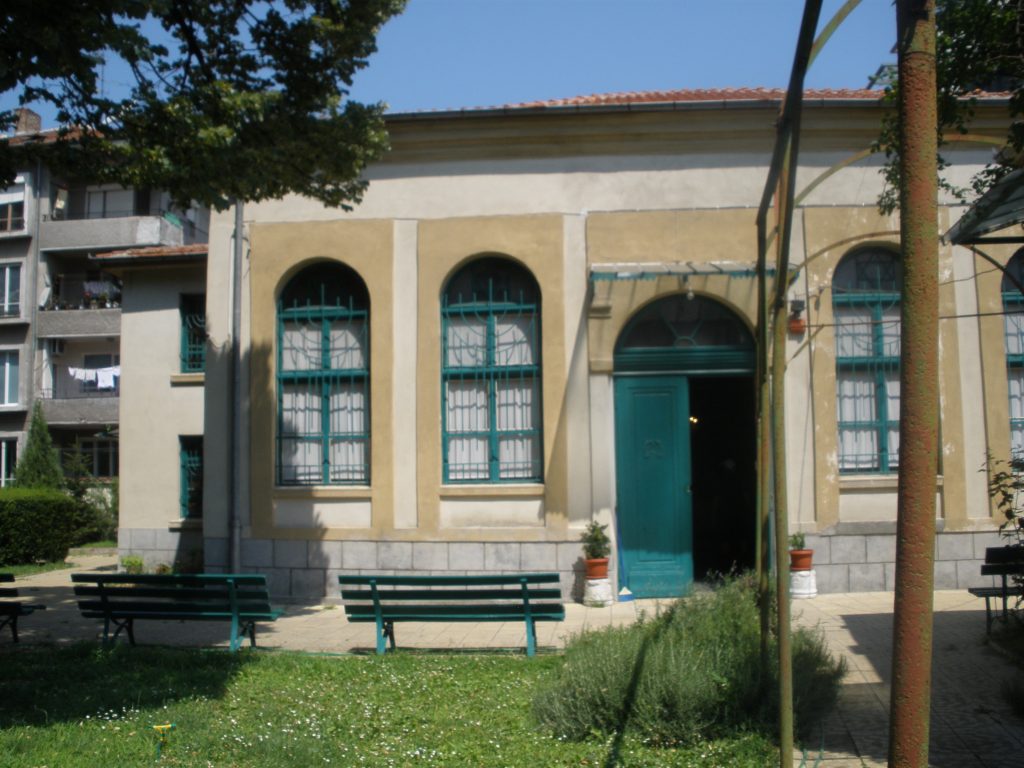
Bulgaria nevertheless handed over 12,000 Jews from its annexed territories (Macedonia, Thrace, Pirot in Yugoslavia) without batting an eyelid but retained its own nationals due to the intervention of a segment of the intelligentsia and hesitation by the state apparatus, sensitive to warnings issued by the Allied powers. The country’s 50,000 Jews escaped extermination.
Several years later, Bulgaria’s new regime had still not returned to Jewish citizens property confiscated from them during the war. Bulgarian Jews eventually formed one of the largest contingents of emigrants to Israel, with 90% of the community moving there. Since 1990, Shalom, the new organization of Bulgarian Jews (consisting of no more than around 3,500 members) has sought the return of “nationalized” Jewish goods, and breathed new life into a community today presided over by only a single rabbi.
By the turn of the 2020s, the Bulgarian Jewish community had grown to include several thousand people. Most live in Sofia, with a few small communities in Plovdiv, Varna, Burgas and Ruse.
Shalom is also very active in perpetuating the memory, maintaining the sites and promoting community and cultural life. It publishes the newspaper Evreiski Vesti, as well as books and brochures.
The only two active synagogues today are in Sofia and Plovdiv, welcoming worshippers on the Sabbath and public holidays.